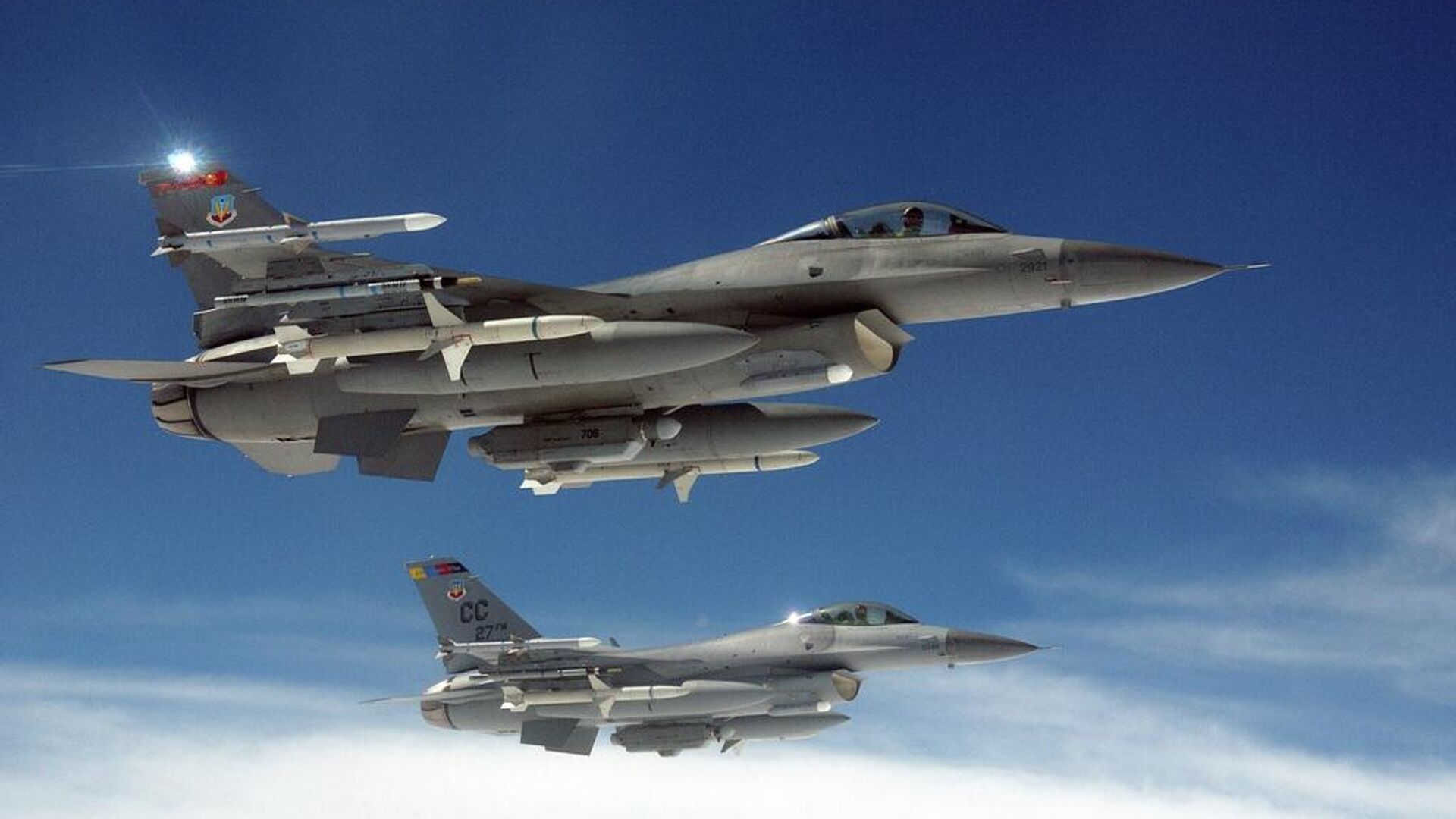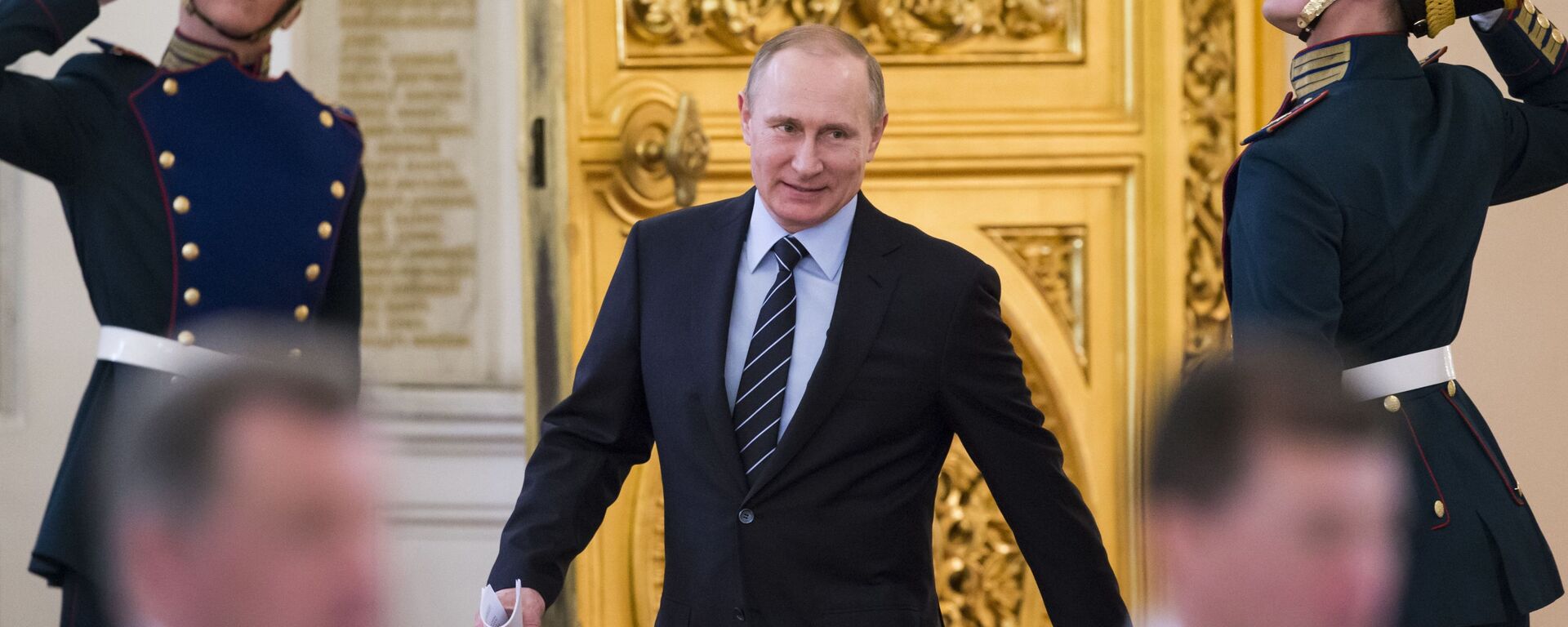Will Kiev Get US F-16 Fighter Jets in Two Years or Ever Following Eastern Referenda?
17:45 GMT 21.09.2022 (Updated: 17:13 GMT 30.04.2023)

CC0 / TSGT KEVIN J. GRUENWALD, USAF /
Subscribe
Ukraine has been quietly in talks with the US about getting F-16 Fighting Falcons, a single-engine multirole fighter aircraft, according to Politico. However, the warplanes wouldn’t arrive for two to three years even if a political decision is made on them, a US general presumed earlier this week.
"The important thing to remember about an F-16 is that it's not just a weapon but a relationship," argued US investigative journalist and author Dan Lazare. "With it go trainers, technical consultants, maintenance personnel, etc. So in seeking to purchase such jets, Ukraine is seeking to establish a long-term partnership with the US that will be as close as possible. It wants to position itself as a forward striking force against Russia on behalf of the US and NATO and hopes that Washington will give its seal of approval to such an alliance."
Apart from the F-16s, Kiev has also sought Patriot air defense systems, Gray Eagle drones and long-range missiles for the High Mobility Artillery Rocket System (HIMARS) which had earlier been delivered to the Ukrainian military. Since January 2021, the United States has committed more than $13.5 billion in security assistance to Ukraine, according to the Pentagon's August report. Earlier this month, the Biden administration unveiled an additional $2.8 billion and requested a further $12 billion from US Congress. According to CNN, Republican senators "signaled tentative support" for the $12 billion on September 20.
"Why does Ukraine want such a relationship and why is the US going along?" asked Lazare. "The answer is simple. America's ultimate goal is to break up Russia and see to it that areas like the northern Caucasus, Siberia, and the Far East go their separate ways and eliminate it once and for all as a military power capable of challenging US policy. It wants to take control of Central Asia and its mineral resources and use it as a base to subvert Xinjiang. Once that is accomplished, it will proceed to the breakup of China as well. The aim is to eliminate a major economic rival by returning it to the warlordism of the 1920s and 1930s."
Meanwhile, it remains unclear whether and when the US will provide Kiev with F-16s. US Air Forces Commander for Europe and Africa Gen. James Hecker has been quoted by Politico as saying that the fighter jets wouldn’t arrive for two to three years even after any political decision was made, due to training and logistical issues. In addition, there are a number of issues associated with the delivery of US sophisticated weaponry to Kiev, according to the media outlet. First, Russia could consider these deliveries provocative; second, complex maintenance and support for the systems would be a challenge for Ukraine amidst the conflict; and third, "existing NATO allies want these systems too."
"Eastern European countries [are] looking to the US to begin selling or financing F-16s for their own defense," Politico noted. "Already, the delivery of 14 F-16s to Slovakia has been delayed a year — to 2024 — due to supply chain issues."
Russian President Vladimir Putin's September 21 announcement about partial draft mobilization and referenda in the Donbass, Zaporozhye and Kherson regions on joining the Russian Federation is a game changer, according to Paolo Raffone, director of the CIPI Foundation, and Tiberio Graziani, chairman of Vision & Global Trends. The think tank directors drew attention to the fact that once the aforementioned regions vote in favor of joining Russia, they would be eligible to fully-fledged Russian protection, including all existing weapons in the country's arsenal.
Raffone expressed doubts that the Biden administration would dare to take on a nuclear-armed Russia despite not recognizing the referenda and claiming that Washington would continue to arm Kiev. During his Wednesday speech at the UN General Assembly, the US president subjected Russia's recent moves to criticism, claiming that "no one threatened Russia." Earlier, US Secretary Antony Blinken branded Moscow's decision as a "sign of weakness."
Even before Vladimir Putin's address to the nation, the New York Times lamented the fact that EU resolve to support Ukraine is fading as winter is around the corner and recession is looming in the Old Continent.
"[M]aterial support for Ukraine from Europe has faded," the NYT admitted on September 20. "The total of new commitments of military and financial aid from six of the largest European countries decreased in May and dropped sharply in June, according to an analysis by the Kiel Institute for the World Economy. In July, the last month for which data was available, none of those countries — Britain, Germany, Poland, France, Italy and Spain — made any significant new pledges… [T]he new data suggested that material support for Ukraine, particularly transfers of military equipment, could become scarce."
It remains to be seen whether Putin's speech will further cool the enthusiasm of Washington and its NATO allies to continue militarizing Ukraine.


